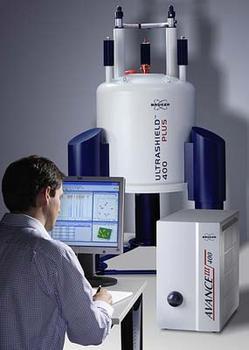Pulsar NMR spectrometer marketed
 On May 2, Oxford Instruments officially launched the Pulsar Nuclear Magnetic Resonance Spectrometer (NMR). This Pulsar is expected to revolutionize laboratory NMR.
On May 2, Oxford Instruments officially launched the Pulsar Nuclear Magnetic Resonance Spectrometer (NMR). This Pulsar is expected to revolutionize laboratory NMR. The instrument uses innovative design and advanced electronic technology to inject new vitality into NMR.
Existing NMR is extremely expensive, in part because they require special cooling, special environments and trained experts to run them. Pulsar, on the other hand, is a desktop system based on permanent magnets instead of superconducting magnets. It is designed for general scientific laboratories and non-specialists.
The Noch Research Park Food Institute (IFR) tested the prototype. The IFR team led by Dr. Kate Kemsley is based on long-term accumulation of scientific data analysis, is developing mathematical models, and designing software to help automatically collect and analyze Pulsar's data, and this process does not require experts to analyze.
IFR has tried the instrument and evaluated its capabilities. Experiments have shown that it can distinguish between hazelnut oil and virgin olive oil. It is difficult to distinguish the two food oils by other methods. The flexibility of NMR technology means that many other similar applications can also be developed for quality control, certification, and adulteration.
Pulsar offers amazing NMR capabilities for smaller laboratories and university teaching centers. Students will gain direct hands-on opportunities for NMR, whether it is data collection or analysis. Quality control laboratories can now add this unique feature to their analysis technology. Ease of use and easy data acquisition make high-throughput NMR an ideal analytical tool for industrial analysis. There are usually a large number of samples processed in industrial analysis, and the results need to be quickly fed back to the control process.
Accelerate Freeze Dried Fig is made of selected ripe figs. The international advanced ultra-low temperature FD technology is adopted to sublime the water content of fruit, without changing the fruit color, shape and flavor. Retaining the original nutritional and medicinal components, without any additive, pigment, sweetener or preservative, it is the best-quality dried fruit. Accelerate Dried Fig won the Silver Medal at the [2017 China Characteristic Tourist Commodity Contest", as well as the [Gold Medal" of [Lishang Weihai" Most Characteristic Tourist Commodity.
Fig
WEIHAI ACCELERATE BIOTECHNOLOGY CO, LTD , https://www.accelerfig.com